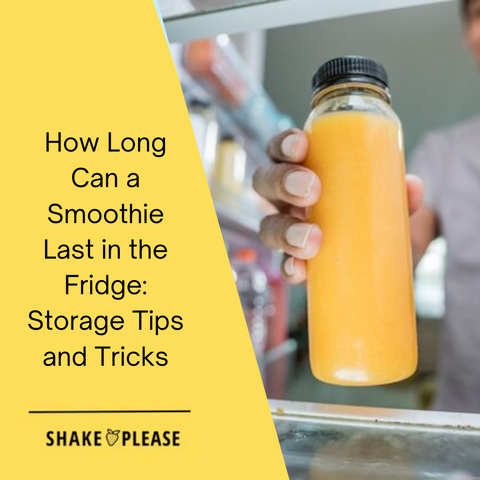
When it comes to health and wellness, intermittent fasting has gained significant attention for its potential to help people lose weight, improve metabolic health, and enhance overall well-being. But where do smoothies fit into a full fasting diet and regimen? Before diving into whether smoothies and healthy foods are acceptable during a fast, it’s crucial to first understand what intermittent fasting is, its different methods, and the benefits it may offer.
Understanding Intermittent Fasting-What It Is
Intermittent fasting is an eating pattern that involves alternating periods of eating and fasting. The primary goal of this approach is to promote weight loss, improve insulin sensitivity, and boost overall health. Rather than focusing on strict dietary rules or food restrictions, intermittent fasting emphasizes when you eat rather than exactly how many calories or what you eat.
Methods of Intermittent Fasting
There are various ways to implement intermittent fasting in everyday life, and choosing the right one often depends on your personal lifestyle, health goals, and daily schedule. Some common methods of practicing intermittent fasting include:
-
Time-Restricted Eating (TRE)
With this approach, you limit your daily eating to a specific window of time—often 8, 10, or 12 hours. Outside of that window, you refrain from consuming any caloric foods or beverages. -
Alternate-Day Fasting
In this method, you fast for a full 24 hours (or significantly reduce caloric intake) every other day. On the non-fasting days, you eat normally. -
Periodic Fasting
This involves fasting for extended periods—such as one or two days per week—while following a regular eating pattern on all other days.
Key Benefits
Many people are drawn to intermittent fasting because of its potential benefits. While individual results can vary, those who practice fasting may experience:
-
Weight Loss
By reducing the window of time during which you consume calories, intermittent fasting can naturally lead to a lower overall calorie intake, aiding weight management. -
Reduced Inflammation
Some evidence suggests that periods of fasting may help lower inflammatory markers in the body, potentially improving overall health. -
Improved Brain Function
Regular fasting might encourage the production of certain proteins that are associated with better brain health, mental clarity, and focus.
Benefits of Intermittent Fasting
Intermittent fasting can help you lose weight and improve your overall health. By limiting the times when you eat, you may naturally consume fewer calories, which can support healthy weight management. Along with weight loss and heart health, this approach to eating has several additional benefits:
-
Reduced Insulin Resistance
During fasting periods, the body often shifts to using stored fat for energy. This process can help improve how well your cells respond to insulin, thereby lowering insulin resistance and supporting healthier blood sugar levels. -
Lower Inflammation
Some evidence suggests that giving your digestive system regular breaks can decrease inflammation in the body, which in turn may reduce the risk of chronic diseases. -
Improved Brain Function
Intermittent fasting may encourage the production of certain proteins that support brain health. Many people report greater mental clarity and focus when following a fasting schedule. -
Increased Human Growth Hormone (HGH) Production
Studies indicate that fasting could boost the production of HGH, a hormone involved in building muscle, burning fat, and maintaining bone health. -
Enhanced Cellular Cleaning
Fasting has been associated with a process called autophagy, which is the body’s way of cleaning out damaged cells and regenerating new, healthier ones. This can contribute to better overall health and vitality. -
Potential for Greater Longevity
Although more research is needed, some studies suggest that the cellular benefits associated with intermittent fasting may translate into extended lifespan and improved long-term health.
It’s essential to consult with a healthcare professional before starting any new diet or fasting regimen. Everyone’s health needs and medical conditions are different, and a professional can help you determine if intermittent fasting is right for you.
What Breaks a Fast?
One of the most important aspects of successful intermittent fasting is knowing what does—and does not—break a fast. Consuming any amount of calories can break a fast, which means even seemingly healthy choices like green smoothies drinking water, fruit juice, and bone broth will technically end your fasting window.
-
Permitted Beverages
No- or extremely low-calorie beverages, such as water, black coffee, and plain tea, are typically allowed during a fast. These drinks contain minimal to zero calories and generally do not interrupt the benefits of fasting. -
Apple Cider Vinegar
Diluted apple cider vinegar is often considered acceptable during a fast. However, using it in moderation and diluting it with water is recommended to protect your teeth and digestive tract. -
Diet Sodas
Although most diet sodas are calorie-free, they remain a point of contention. Some healthcare professionals recommend caution with diet beverages due to their artificial sweeteners. If you have concerns, consult with a doctor to determine whether these drinks fit into your fasting routine.
Keeping these guidelines in mind can help you maintain the integrity of food intake your fasting period and maximize its potential health benefits.
Smoothies and Intermittent Fasting
Smoothies can be a convenient and nutritious way to consume a variety of vitamins, minerals, and antioxidants, especially if you’re short on time or prefer a quick meal option. However, whether or not you can enjoy fruit smoothies without breaking your fast depends on the ingredients you include.
The Ultimate Guide to Choosing the Best Fruit for Smoothies
-
Calorie Content
Since any form of calories technically breaks a fast, a traditional smoothie loaded with sugar, fruit juices, and high-carb ingredients can disrupt the fasting state. Consuming a smoothie in the middle of your fasting window could halt the benefits you’re aiming for, such as fat-burning and improved insulin sensitivity. -
Low-Carb, High-Fat, and Protein-Rich Ingredients
If you want to minimize your risk of breaking a fast, focus on using low-carb, high-fat, and protein-rich ingredients in your smoothies. This approach helps to keep the calorie and sugar content down, allowing you to maintain some of the metabolic benefits of fasting. -
Portion Control
Even with low-carb ingredients, it’s essential to pay attention to your portion sizes. Consuming large amounts of calories—even from “healthy” sources—can still interrupt the fasting process. A smaller serving that provides just enough protein and fats for satiety might be a better fit than a large, calorie-heavy drink.
Choosing the Right Smoothie Ingredients
When preparing a smoothie during or around the first meal of your fasting window, be strategic with your ingredient choices. The best intermittent fasting-friendly smoothies are low in carbohydrates, high in protein, and include healthy fats to keep you satiated.
-
Leafy Greens
Spinach, kale, and other leafy greens add fiber and nutrients without significantly raising the sugar or calorie content of your smoothie. -
Low-Sugar Fruits
Berries, such as strawberries, raspberries, and blueberries, are excellent options for adding natural sweetness without a high glycemic impact. If you’re looking for a convenient protein-berry blend, consider something like the Vanilla Berry Protein Smoothie or the Pineapple Berry Protein Smoothie from Shake Please. -
Healthy Fats
Coconut milk, almond milk, and nut butters (e.g., almond butter, peanut butter) provide healthy fats that can help keep you full for longer. For example, a combination of chocolate, peanut butter, and banana can be delicious while offering protein and fats. -
Protein Sources
Protein is crucial for muscle maintenance and overall health, especially while fasting. Consider adding a high-quality protein powder or opting for a pre-blended smoothie with protein included, such as the Strawberry Banana Protein Smoothie. -
Avoid Added Sugars
Steer clear of high-calorie sweeteners like honey, maple syrup, or agave nectar. These can quickly increase the sugar content of your smoothie and potentially break your fast sooner than intended.
What Ingredients Do You Put In A Smoothie
Tips for Making Smoothies Part of Your Intermittent Fasting Routine
-
Choose the Right Ingredients and Portion Sizes
Select low-carb, protein-rich, and healthy-fat ingredients to help keep your calorie intake in check. Opt for modest portion sizes that won’t spike your blood sugar or abruptly break your fast. -
Experiment with Different Recipes
There’s no one-size-fits-all approach when it comes to taste and nutrition. Feel free to try various combinations of greens, berries, and protein sources to discover which flavors and textures you enjoy most. -
Incorporate Healthy Fats
Adding a small amount of healthy fat can promote satiety and help sustain energy during your fasting window. Consider ingredients like coconut oil, avocado, nuts, or nut butters. For inspiration, you can also look to premade blends like the Chocolate Peanut Butter Banana Protein Smoothie, which contains a balanced mix of protein, fats, and carbohydrates. -
Drink Smoothies Slowly and Mindfully
Gulping down a smoothie too quickly can contribute to digestive discomfort. Sip your drink gradually to give your body time to break down the nutrients and process them efficiently.
Common Mistakes to Avoid When Drinking Smoothies During Intermittent Fasting
-
Consuming High-Carb, High-Sugar, or High-Calorie Smoothies
Adding sweeteners like honey, maple syrup, or agave nectar—or overloading on high-glycemic fruits—can spike your blood sugar and break your fast sooner. Choose low-glycemic fruits such as berries and avoid extra sugars. -
Not Customizing for Personal Preferences and Dietary Needs
Each person’s gut health and dietary requirements can differ significantly. Experiment with different ingredients to find the perfect balance of taste and nutrition for your body. -
Ignoring Ingredient Labels and Portion Sizes
Even healthy ingredients can break your fast if you use large quantities or add too many calorie-dense items. Keep an eye on labels and measurements to maintain your fasting window and metabolic benefits. -
Drinking Too Quickly
Rapidly downing a smoothie can lead to bloating and digestive stress, especially when transitioning out of a fasted state. Slow, mindful sips can help your digestive system adjust more comfortably.
Why Breaking Fast the Right Way Is Important
Breaking your fast the right way is essential for maintaining good health and avoiding digestive issues. After extended periods without eating, your body becomes more sensitive to the first food you consume—often referred to simply as the “eat” to break intermittent fasting, or “food” that breaks your fast. Choosing a nutrient-dense and easily digestible option to break intermittent fasting, like a well-balanced smoothie, can make a significant difference in how you feel.
-
Gentle on Your Digestive System
When you go without food for an extended period, your digestive system slows down. Introducing a large or heavy meal right away can cause discomfort, bloating, or other issues. Smoothies offer a gentler transition, helping your system adjust more easily after fasting. -
Immediate Nutrient Boost
A smoothie loaded with the right ingredients—leafy greens, low-sugar fruits, healthy fats, and protein—provides an efficient way to replenish essential vitamins, minerals, and macronutrients. This helps stabilize your blood sugar levels and maintain consistent energy throughout the day. -
Customizable to Your Needs
Since smoothies are highly adaptable, you can tailor them to your dietary preferences or health goals. Whether you require more protein, prefer certain types of healthy fats, or wish to limit carbohydrates, smoothies make it easy to tweak ingredients as needed. -
Sets a Positive Tone for the Day
The “food” you choose to break your fast can influence your subsequent meals and snack choices. Opting for a balanced smoothie can help you maintain mindful eating habits and set the stage for making healthier decisions throughout the rest of your eating window.
By carefully selecting small portions of what you eat to break your fast, you not only support better digestion but also set yourself up for success in meeting your health and wellness goals. A smoothie can be a great way to break your fast and provide essential nutrients—just be mindful of the ingredients and portion sizes to ensure you reap the full benefits of intermittent fasting.





